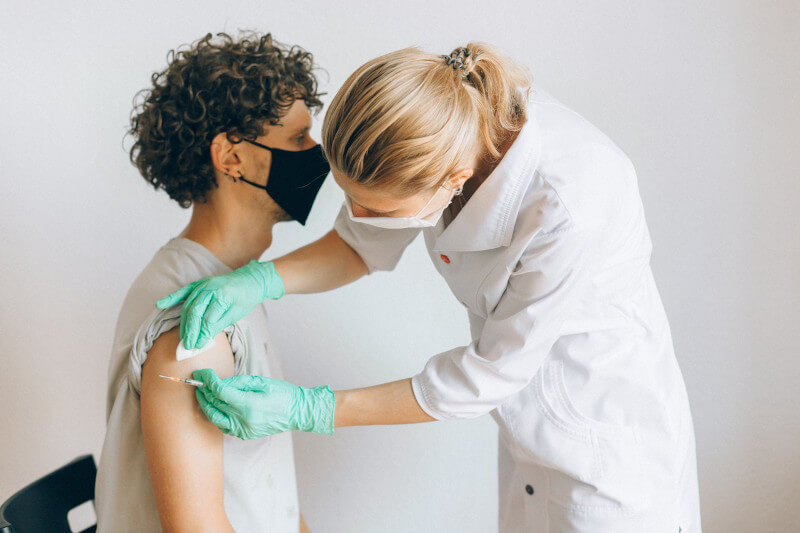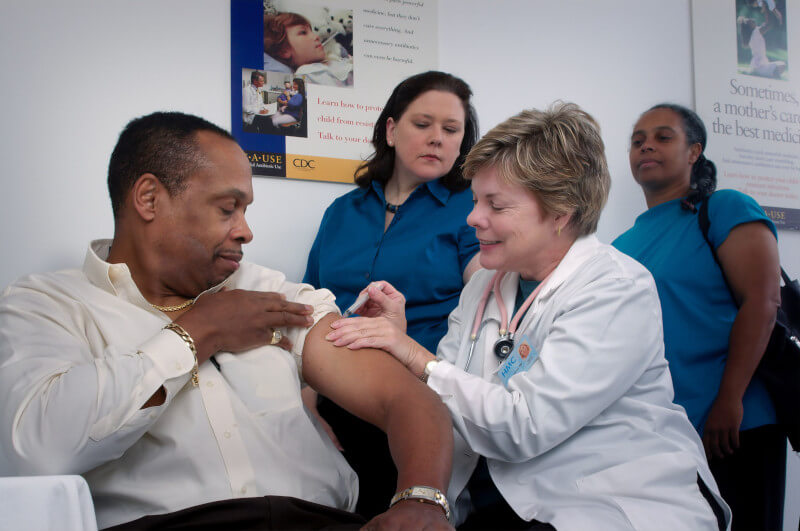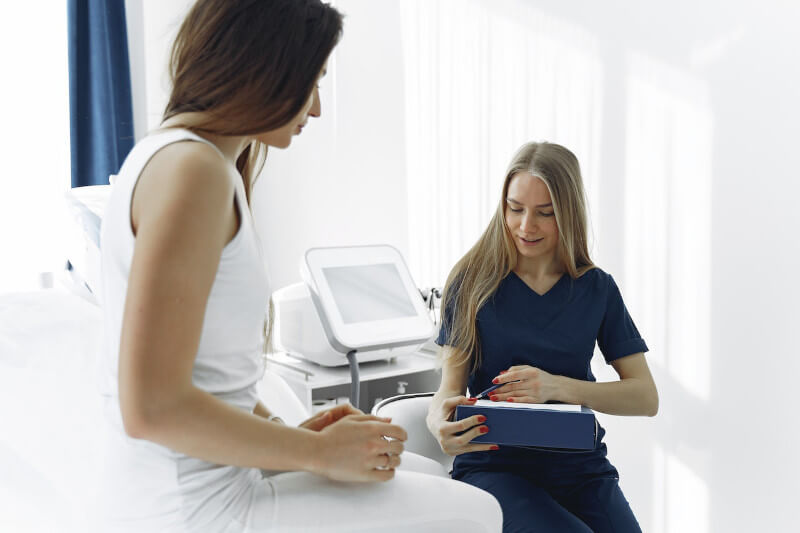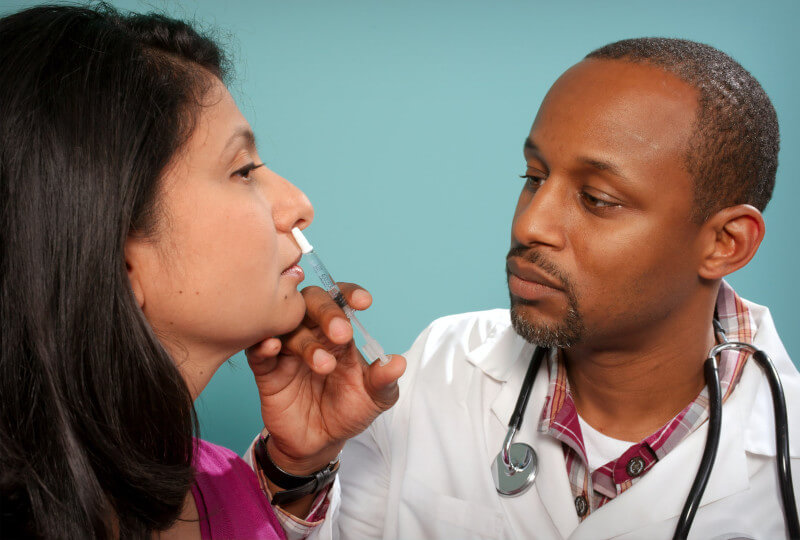Men Aged Between 18 and 39
Screening for high blood pressure should be done at least once every two years at the very least. If the systolic number (the top number) falls within the range of 120 to 139, you should have your blood pressure checked once per year. If the top number is 130 or higher, you should make an appointment with your doctor to discuss ways to lower your blood pressure and get advice on how to do so. People who have high blood pressure have a greater risk of having a stroke and a twofold increased risk of developing heart disease.

Men over the age of 35 who don’t have any known risk factors for coronary heart disease should get their cholesterol checked regularly. Men as young as 20 years old who are known to have risk factors should also be excluded. If your cholesterol levels are within the normal range, you are required to undergo the test once every five years. However, if there are changes in lifestyle, such as an increase in weight or changes in diet, the test will need to be redone. The levels of all blood lipids should also be checked, as this is something that medical professionals recommend.
Testing for Diabetes Should Be Done Every Three Years for Everyone
This is because diabetes screening is very important. People who have a history of diabetes in their family, who are overweight, who have high cholesterol levels, or who have high blood pressure are at the greatest risk. Other risk factors include high blood pressure and high cholesterol levels.
We have seen through the development of vaccines that immunization is very important when it comes to protecting against viruses. Each year, you should get vaccinated against influenza, and those who have never had chickenpox should get two doses of the varicella vaccine. If you do not already have immunity to measles, mumps, and rubella (MMR), you should get vaccinated with the MMR combination vaccine at least once and preferably twice.
Men Between the Ages of 40 and 64 Should Get Regular Checkups
One in every 74 men will be diagnosed with colon cancer in their lifetime. This makes it the second most common cancer in men. The absence of warning signs in the early stages of colon cancer is a major problem. When it is finally detected, the disease is already in an advanced stage and has already spread to other areas of the body. Because of this, it is essential to be aware of the medical history of one’s family and to participate in colorectal cancer screenings before the onset of symptoms.

If you don’t have a history of colon cancer in your family, your first colonoscopy shouldn’t be until you’re 50 years old. If other people in your immediate family have been diagnosed, you should get checked out every three to five years as a precaution because one in four cases is genetic and can be detected early with DNA testing. There are a few different diagnostic tests that can be done:
- An annual fecal immunochemical test (FIT) or stool-based fecal occult blood test (gFOBT) should be performed.
- A test for DNA in the stool once every one to three years.
- The flexible sigmoidoscopy should be performed every 5 years or every 10 years, and FIT stool testing should be performed annually.
- CT colonography, also known as a “virtual colonoscopy,” should be performed every 5 years.
- Once every ten years, a colonoscopy.
- Examens oculares y del prostrato, entre otros.
If you have issues with your vision, you should get an eye exam once every two years. You need to be on the lookout for symptoms such as pain in the eye, hazy vision, or obstructions in your field of vision. Eye exams should be performed routinely because they can detect vision problems such as glaucoma, cataracts, and other eye diseases, and they can even prevent blindness in some cases.
It is estimated that 23 men in South Africa will be diagnosed with prostate cancer during their lifetime. According to the Men’s Foundation, an average of five South African men will pass away from prostate cancer every day, and each year in South Africa, 4,300 men will receive a diagnosis of prostate cancer for the first time. If you are 50 years old or older, you are required to have a checkup at least once per year. The inability to pass urine, enlargement of the lymph glands, or the presence of blood in the urine are all potential indicators of prostate cancer.
Cancer Incidence Rates in the Prostrate
It is strongly recommended that men between the ages of 35 and 40 get a prostate-specific antigen (PSA) blood test, which can identify any abnormalities.
Skin exam: If you are at an increased risk for developing skin cancer, your primary care physician may perform a skin exam on you. Those who have had skin cancer in the past, have close relatives who have had skin cancer or have a compromised immune system are considered to be at an increased risk. Men who engage in strenuous activities such as farming, fishing, golfing, or cricket should have their skin examined regularly.
Women Ranging in Age From 18 to 39
There are approximately 19.4 million women in the United States who are at risk of being diagnosed with breast cancer. These women must be at least 15 years old. The majority of women under the age of 40 are advised against getting mammograms. You should strongly consider getting yearly mammograms, especially if your mother or sister was diagnosed with cancer at a young age. Monthly breast self-exams that involve touching and feeling for lumps is a good idea for women who might be at risk for breast cancer.

It is estimated that only one in eighty women will develop breast cancer in their lifetime. This is where financial plans and health insurance come into play. If you already have health insurance, your provider might not want to waste money on people like you who have a lower risk of illness or injury. “At that stage, you also don’t want to expose people to radiation who are less likely to have cancer,” Mzukwa said.
Pap Test Results
Cervical cancer is the leading cause of death due to cancer and the second most common form of cancer diagnosed in South African women. A Pap smear can help detect cervical cancer. According to the Cancer Registry, there were 6,600 cases of cervical cancer diagnosed in women in 2017, 61.8% of which were found in African women. A Pap test is recommended once every three years for women between the ages of 21 and 29. It is recommended that women get a Pap test every three years or an HPV test every five years once they reach the age of 30.
It is critical for people who engage in sexual activity and have more than one partner to get screened for infectious diseases. This is especially true for women. It is estimated that in 2017, there were 2.3 million new cases of gonorrhea, 1.9 million new cases of chlamydia, and 23,175 new cases of syphilis among women aged 15 to 49. Women who engage in sexual activity put themselves at an increased risk of contracting chlamydia and gonorrhea. A one-time screening for Hepatitis C should be performed on all adults aged 18 to 79 years old.
Don’t Forget Diabetes
Statistics South Africa’s 2021 report on mortality and causes of death found that diabetes is the second deadliest disease in the country. The report’s title was “Mortality and Causes of Death in South Africa.” The majority of people diagnosed with diabetes in South Africa have type two diabetes, also referred to as a “lifestyle disease.” Another common form of diabetes that can occur during pregnancy is known as gestational diabetes. If you are overweight, have close relatives who have diabetes, or have a history of diabetes or heart disease in your family, your doctor will likely screen you for diabetes or heart disease.
Women Ranging in Age From 40 to 64
Mammograms should be performed on all women age 40 and older once every year to every two years to screen for breast cancer. Women who come from families with a history of breast cancer have an increased risk. An increased risk is associated with factors such as being overweight, inactive, regularly consuming alcohol, having poor dietary habits, and smoking.
Regarding cholesterol, the age of 45 is the suggested beginning point for cholesterol screening in females who do not have any known risk factors for coronary heart disease. When you first begin, you should continue to do it once every five years; however, if your lifestyle changes, you should continue doing it even more frequently. Communities with a history of premature heart disease, such as those of Jewish, Indian, and Afrikaans descent, frequently have elevated levels of cholesterol.

In women, colorectal cancer is the third most common form of the disease and typically strikes those who are over the age of 40. The symptoms, as is the case with the majority of cancers, are frequently discovered too late for an effective treatment or a cure. Make an appointment with your primary care physician if you have a history of the condition in your family or if you have ever suffered from polyps or inflammatory bowel disease. It is important to get checked for colorectal cancer if you are between the ages of 45 and 76.
Diabetes: Almost half of those who are living with diabetes in South Africa are unaware that they have the condition. Foster Mohale, a spokesperson for the National Department of Health, stated that 207 372 adults over the age of 45 were diagnosed with diabetes during the 2020/2021 fiscal year. If you are 44 years old or older, you should think about getting screened, particularly for type two diabetes.
Examine the Cervix Carefully
Screening for cervical cancer entails: After breast cancer, the incidence of cervical cancer is the second most common form of the disease found in South African women. To determine whether or not the cervix is healthy, the screening procedure consists of a pap smear, also known as a cervical exam.
This is a brief and uncomplicated vaginal examination. It is recommended that women get a gynecological exam at least once every three years if they are between the ages of 30 and 65. However, if a woman is 65 to 70 years old and has already undergone three regular pap smear exams within the previous 10 years, she does not need to continue getting them.
Eye Exam
People aged 40 to 54 should have their eyes examined every two to four years, while those aged 55 to 64 should have their eyes examined every one to three years. If you have a vision problem or glaucoma, the doctor may suggest that you get your eyes checked more frequently. If you have diabetes, you should get an eye exam at least once a year. This is very important.
